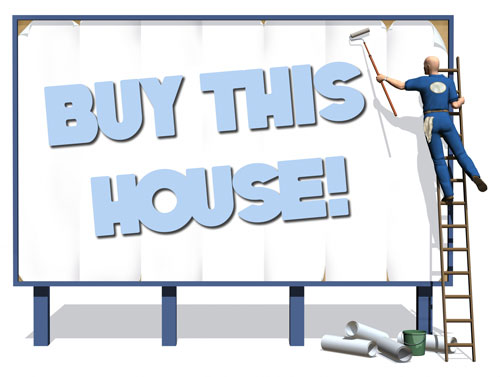Will More Advertising Sell My Overpriced Home?
By: Marc Rasmussen –
Although advertising is an essential key in selling real estate, buying a home is based on local market value. Advertising an overpriced home can and will hurt the homes selling potential. The most important factor in selling a home is pricing it right. It takes experience and work to price a home in a desirable market range.
When a real estate agent gives a price opinion, that opinion is based on a comparable market value. Homes matching the property’s criteria that are available for sale, and homes that have sold within the past six months are compared to generate a viable price range. This type of comparable is done by banks and financial institutions for appraisal. When buyers are applying for a loan, it doesn’t matter if they want an overpriced home or not. No loan approval means no buyer. Factors included in pricing a home for sale are appraisal value, supply an demand, and economic structure.
Buyers look within these comparable ranges when searching for homes. Supply and demand become a key factor in this situation as well. Even in high demand areas, if a home is overpriced, chances are the buyer and buyer’s agent will not select the property for viewing. When a buyer is house hunting, catching the advertisement will arouse their curiosity. However, after comparing like homes at a lower price, buyers will direct their attention elsewhere.
Economic structure plays an important role in home selling as well. When the market is flooded with foreclosures, homes are price lower to sell quickly. This results in lower home prices for the local market. However, pricing a home strategically lower than market value, will drive more buyer interests and produce higher bids on the property through competition. Also, improvements play a key role in buyer interests as well. Standing out against the competition will attract buyers more efficiently than advertising a less competitive home or fixer upper. In a tough economy, buyers look for move-in-ready homes with little out-of-pocket expense for home repairs.
Overpricing a home generally stigmatizes it, causing the home to remain on the market for long periods of time. This can send a red flag to the buyer as to potential problems with the home/property, giving a negative first impression. Also, reducing the price of the home can make the seller look desperate causing extremely low offers and more firm buyer negotiation. Also, a buyer’s agent generally won’t place an overpriced home on their showing lists to avoid losing credibility with their buyers.
A good first impression in a buyer’s mind results in a positive and quick sale for the home seller. Achieving this first impression not only results in an updated, neat and move-in-ready home, but the homes selling price as well. More advertising on an overpriced home can only lead to leaving more buyers with a negative impression, thus buying elsewhere.
No Comments
RSS feed for comments on this post.
Sorry, the comment form is closed at this time.
